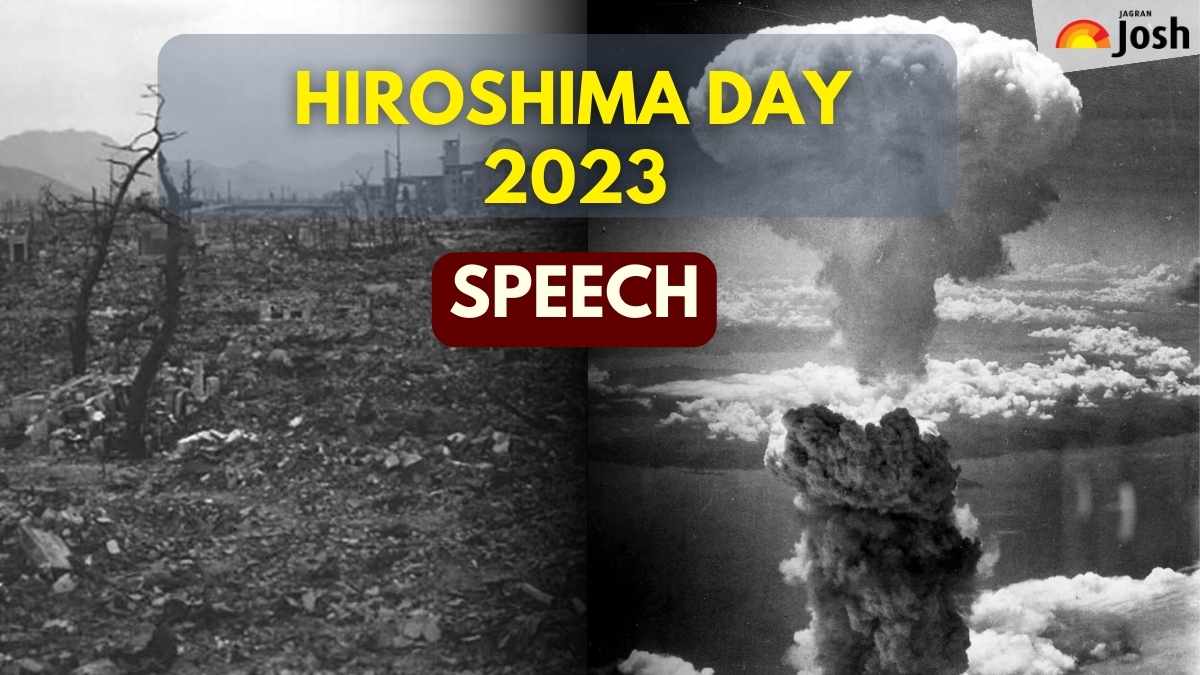Today’s School Assembly Headlines (30 June): Manipur Protests, France Riots, Steve Smith century
[ad_1] Today's News Headlines in English for School Assembly: You can check the list of…
[ad_1]

“I know not with what weapons World War III will be fought, but World War IV will be fought with sticks and stones,” is a famous quote attributed to Albert Einstein, and it couldn’t be more true. Good morning, respected principal, teachers, peers and members of the jury. Today on August 6, we observe Hiroshima Day, and I am here to say a few lines on this fateful occasion.
August 6, 1945, is a day that not many living remember, but it holds significant importance in history. On this day, the United States dropped an atomic bomb, the likes of which no one had ever seen before on Hiroshima, Japan. Codenamed “Little Boy,” it was the first of the only two uses of nuclear weapons in an armed conflict. Three days later on August 9, another bomb (codename: “Fat Man”) was dropped on Nagasaki.
The decision was made in light of Japan’s refusal to surrender in World War II. The war had ended in Europe with Germany’s fall, but the Allied forces anticipated another year of fighting to defeat Japan. The invasion of the Japanese mainland was deemed too costly, time-taking and devastating for the Allies to undertake.
The United States had already developed two atomic bombs in the Manhattan Project and decided to use them against Japan with the approval of all the other allied nations. The result was the “prompt and utter destruction,” of Hiroshima, just like the the Allies promised Japan in the Potsdam Declaration. A bustling city of thousands was reduced to ashes within minutes, and countless innocent lives were lost. It’s estimated that around 200,000 people died from the bombing and its aftereffects like radiation poisoning.
The unprecedented demolition of Hiroshima immediately raised concerns regarding the use of nuclear force in wars. However, an early poll taken in the US after the bombings showed that 85% of participants supported them, 10% opposed them, and the remainder had no opinion.
The Hiroshima and Nagasaki bombings are a blot on humanity, but they also ended World War II, preventing potentially years of fighting and thousands of military and civilian casualties. But what was the need to take this extreme step, and why did the Allies think to justify it? I believe it was because they sought the greater good and personal gains. Kill thousands of people now and seal themselves global powers or engage in more death and destruction, the Allies had two choices, and they chose the former. An estimated half a million soldiers would be lost in a land invasion of Japan.
Hiroshima and Nagasaki were chosen because they comprised sizable military garrisons and factories. The US also wanted to display the full might of the bomb, and Hiroshima and Nagasaki fit the bill in terms of size and geography. Many historians argue that the step was too extreme and should be considered a war crime. I too share the same opinion and believe the Hiroshima and Nagasaki bombings were the most unnecessary and cruel things to happen in a war.
We observe this day to remember all the lost souls who perished for no reason in the Hiroshima bombings. Let us always remember the godly power of nuclear force and how it could flatten the world. On that note, I pledge, and so should you – to practice peace and never support violence.
Thank you.
[ad_2]
Source link